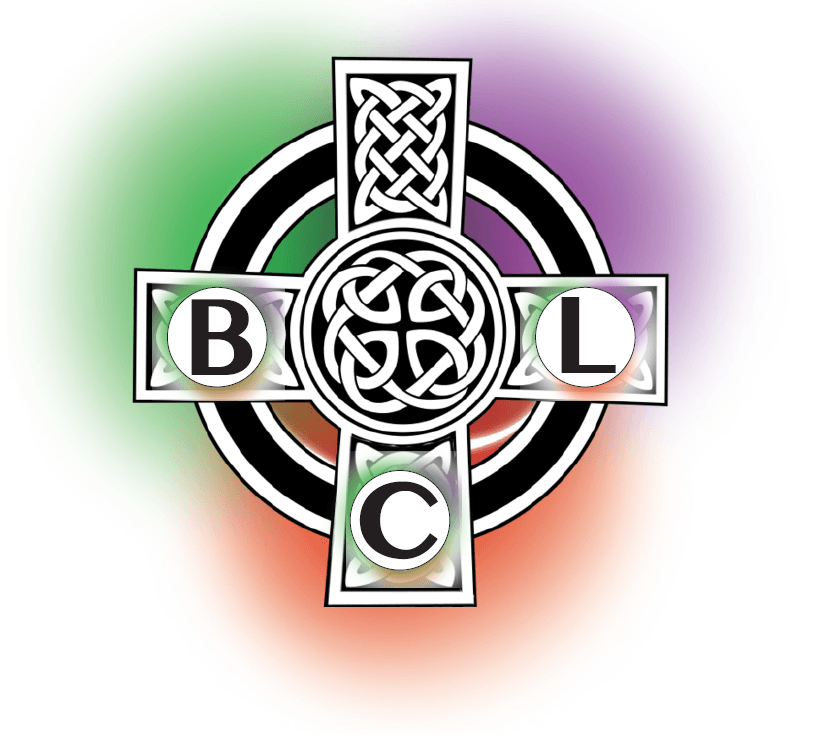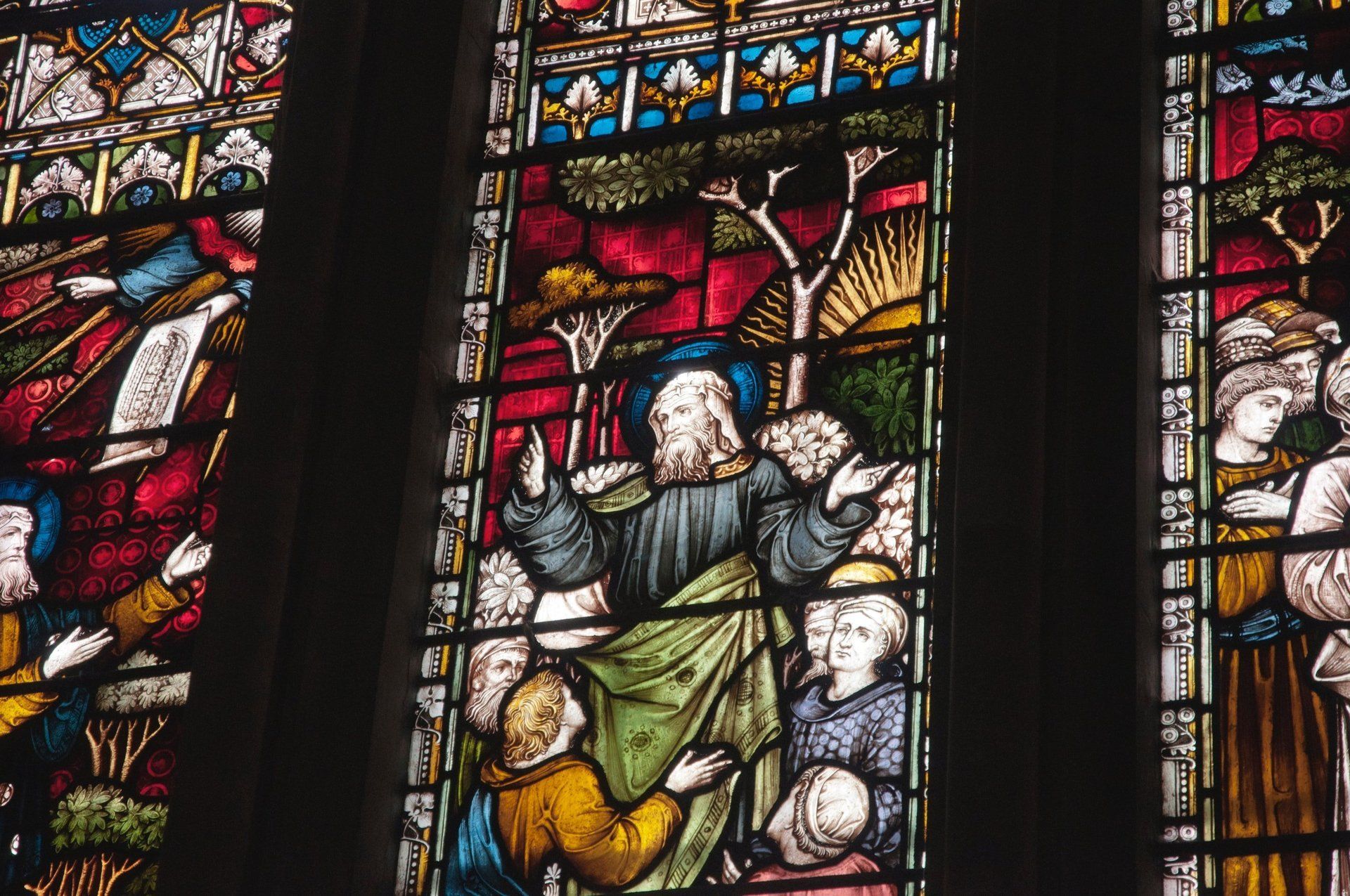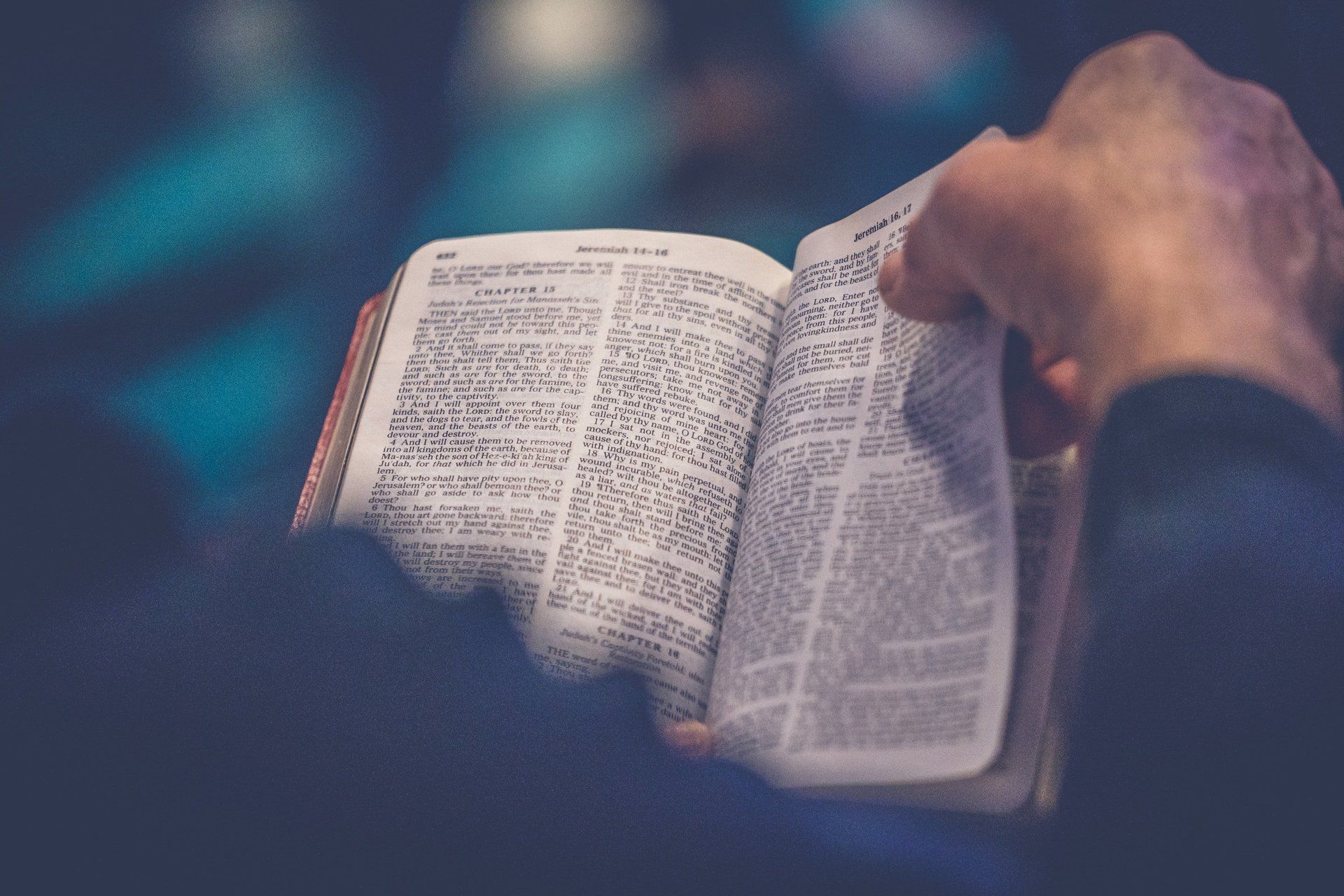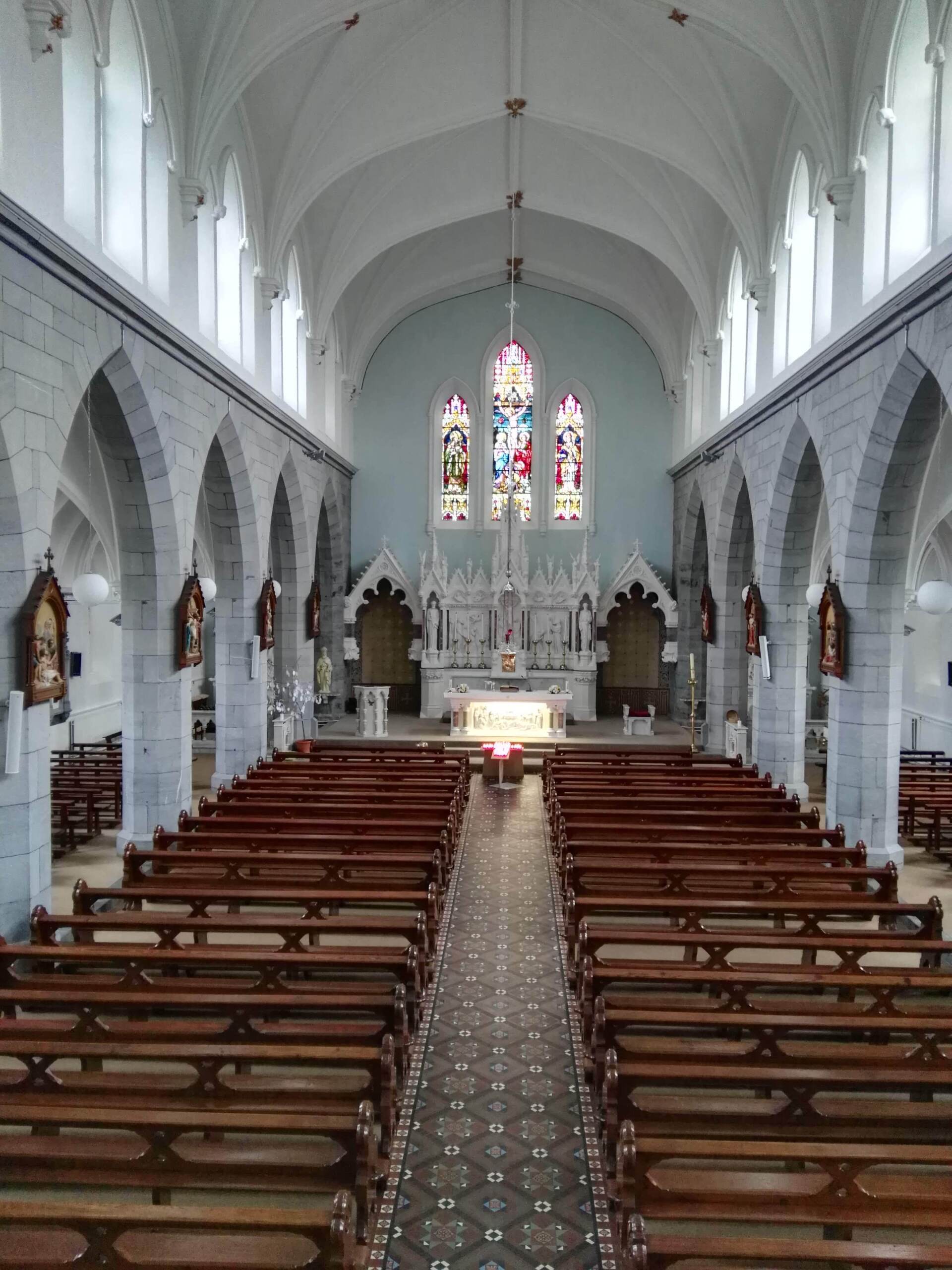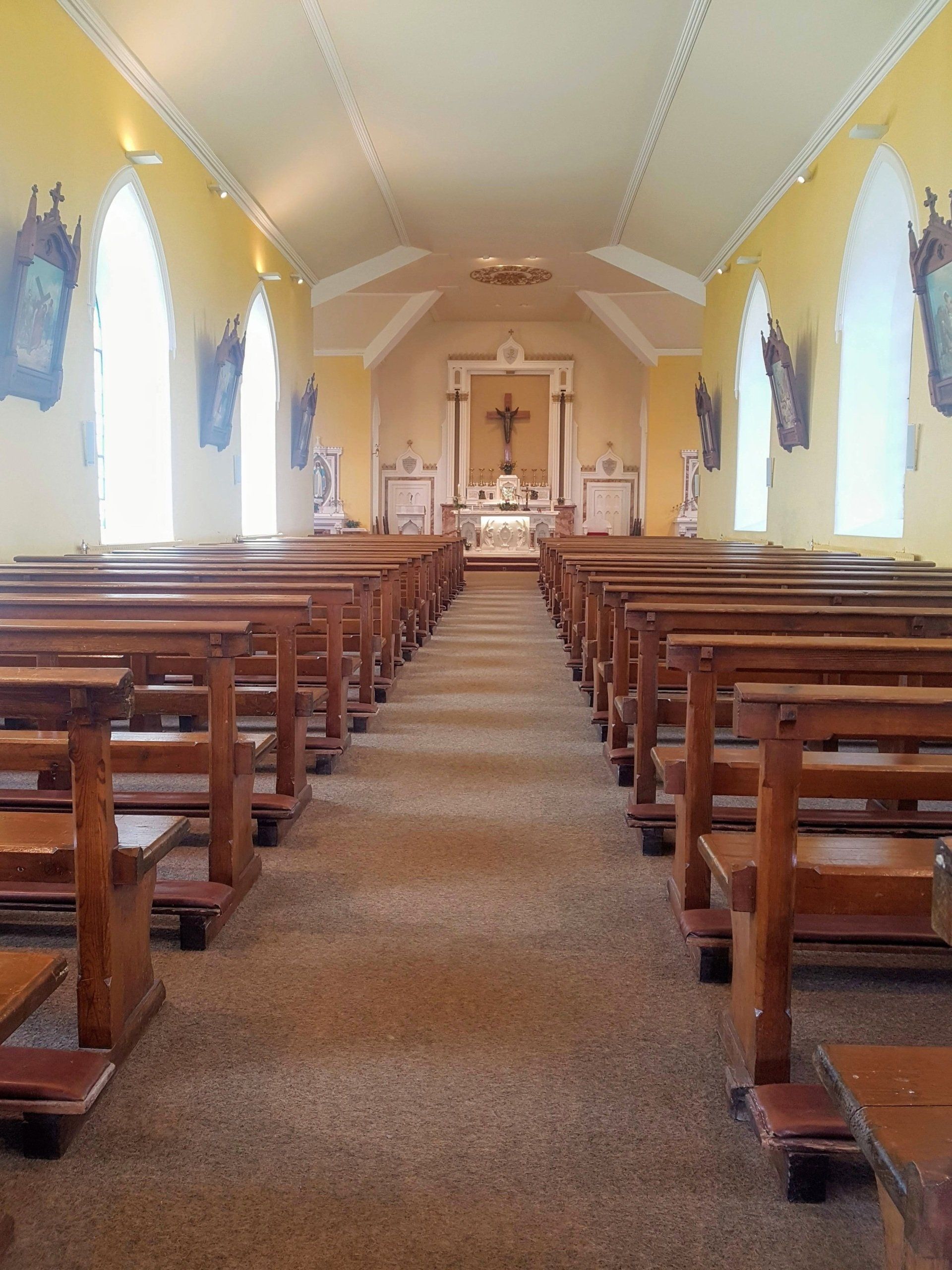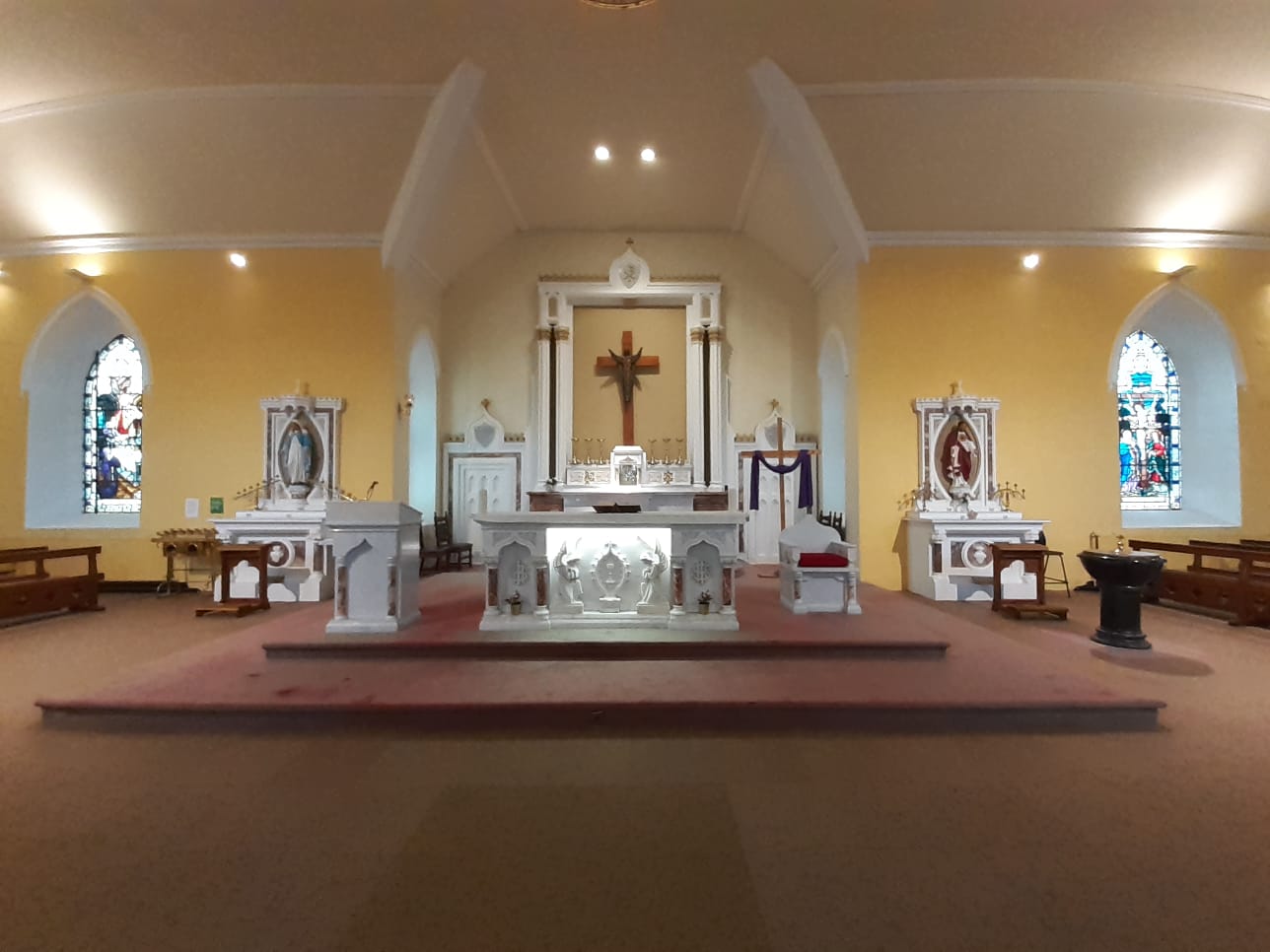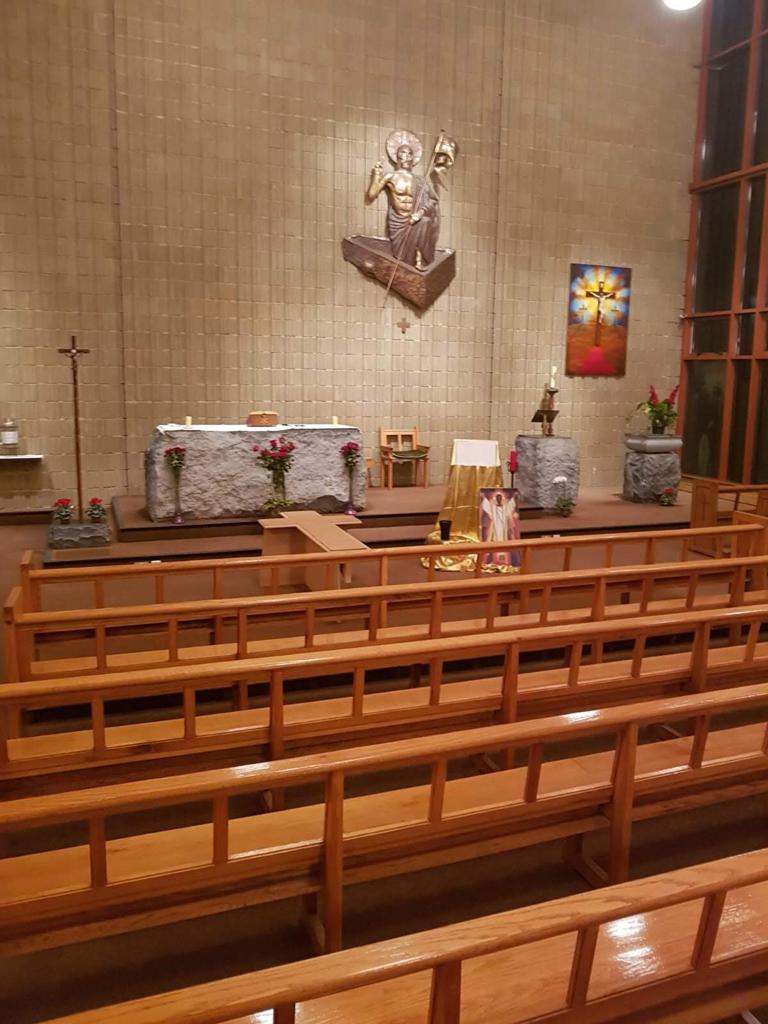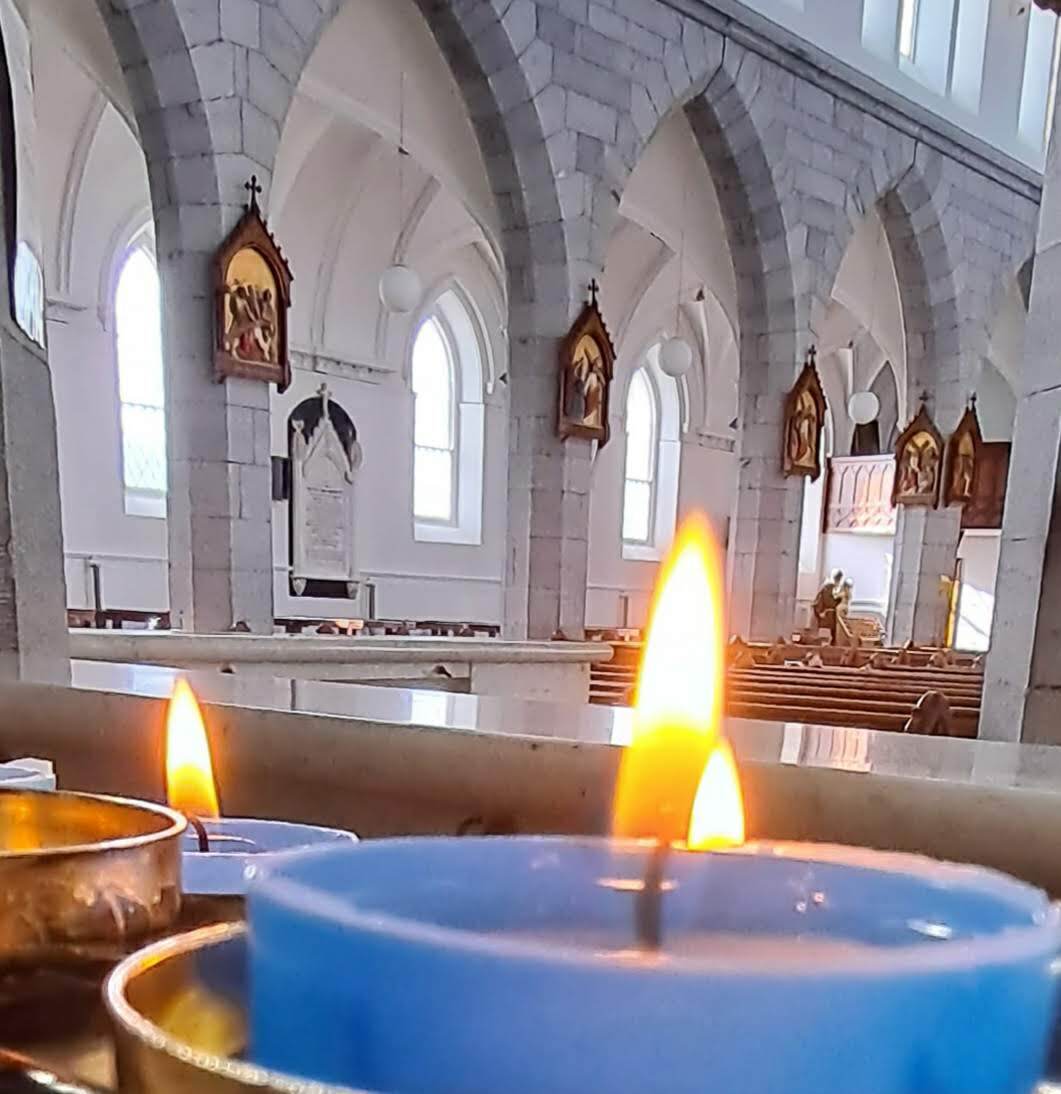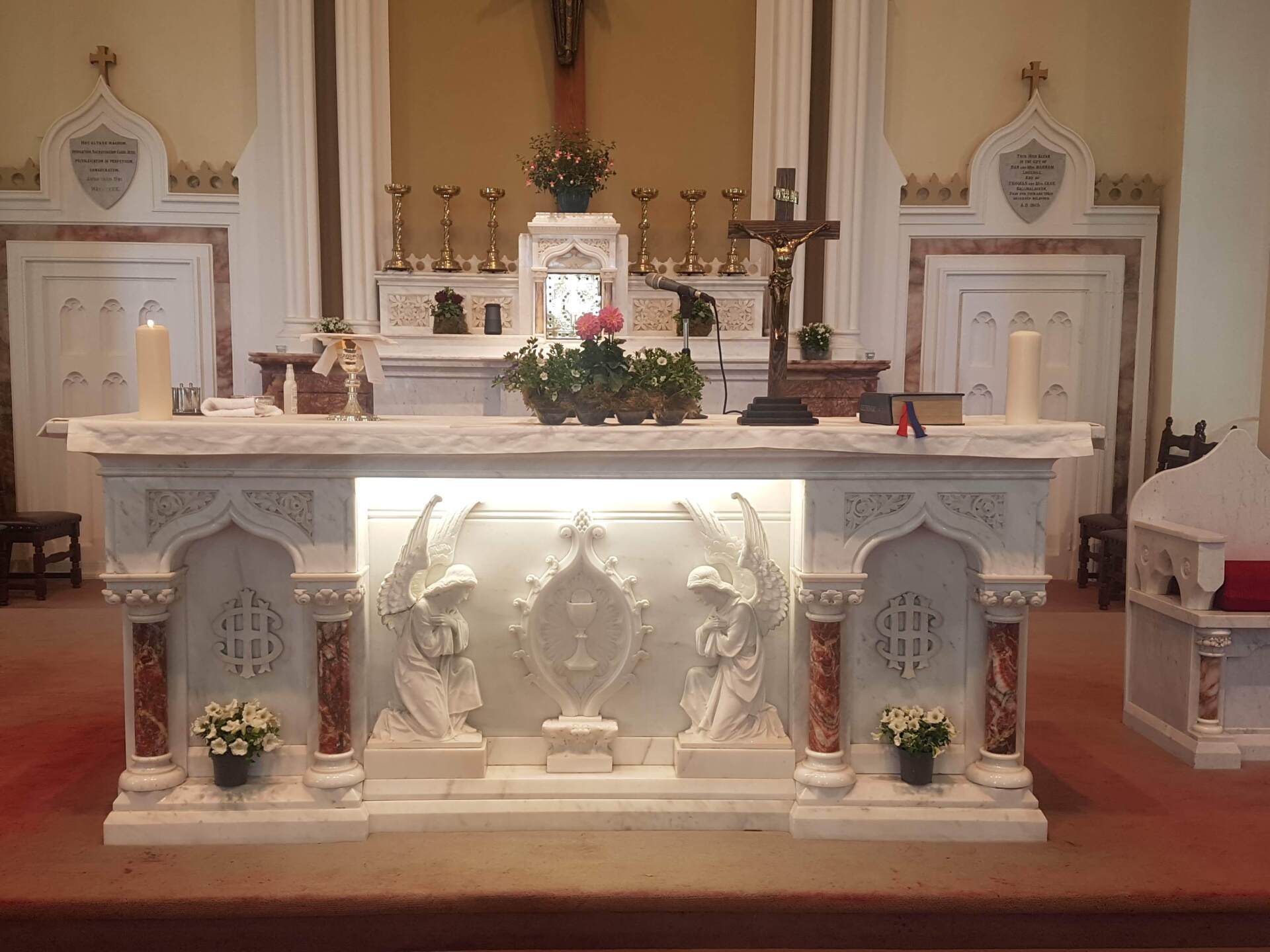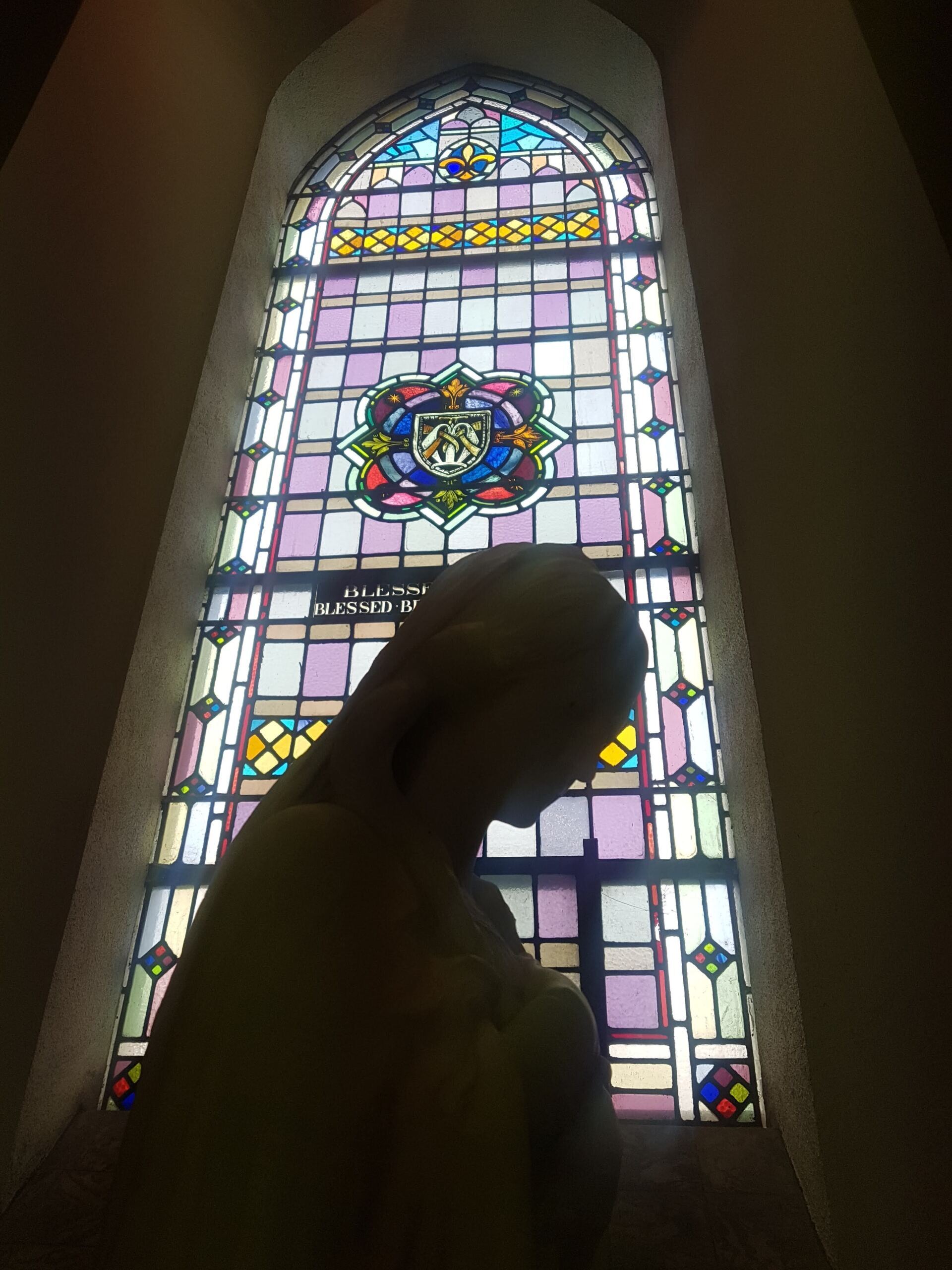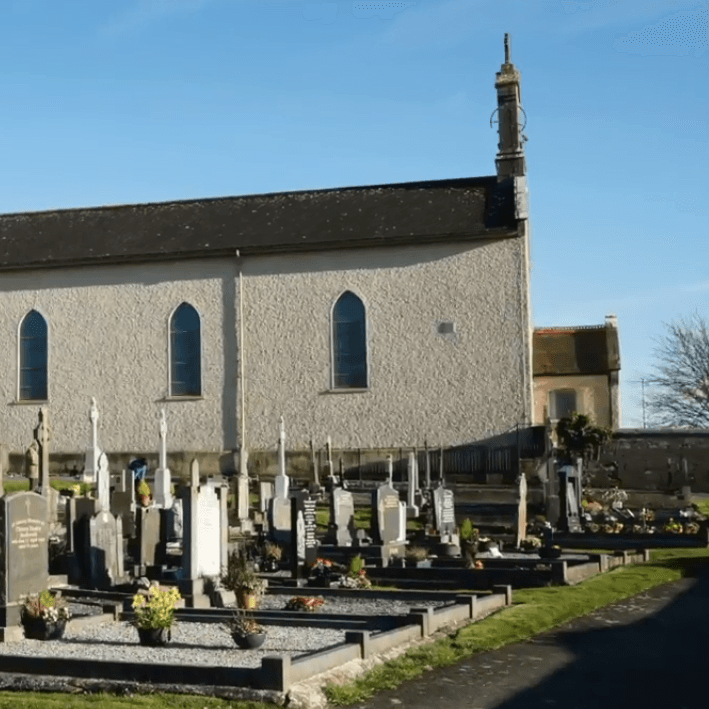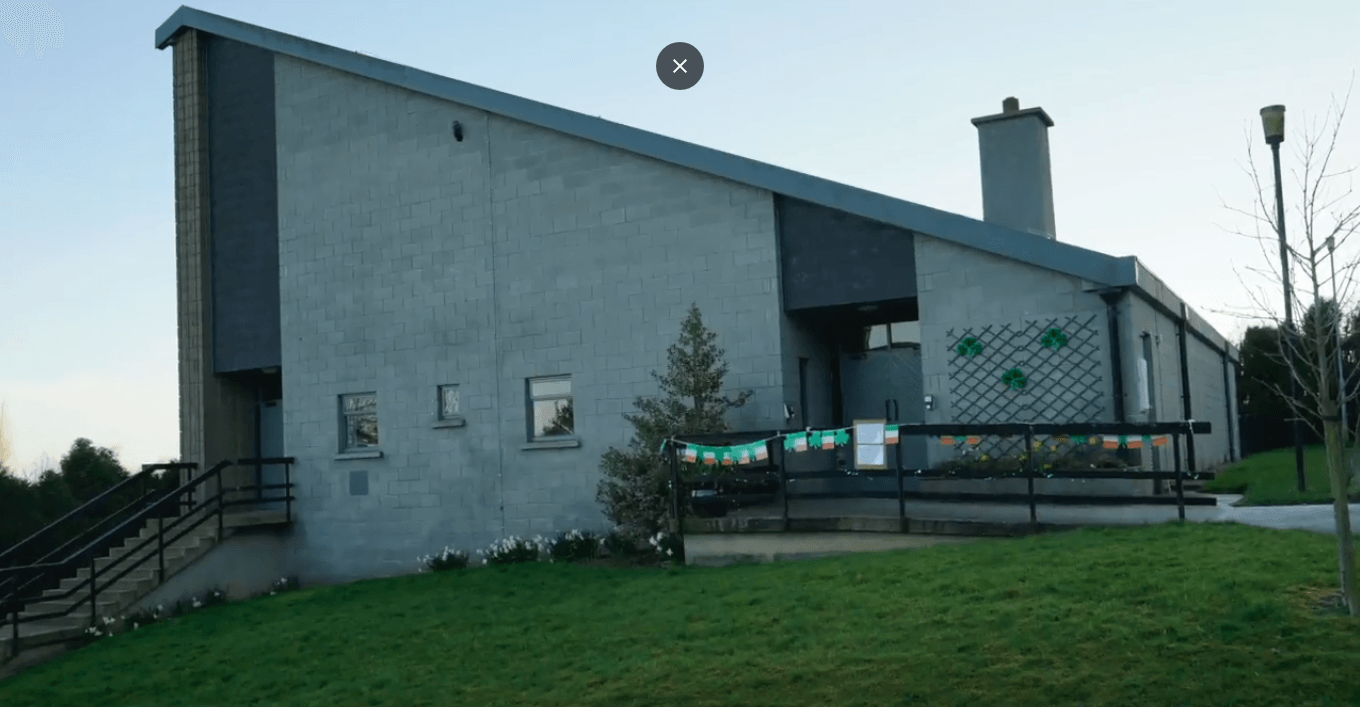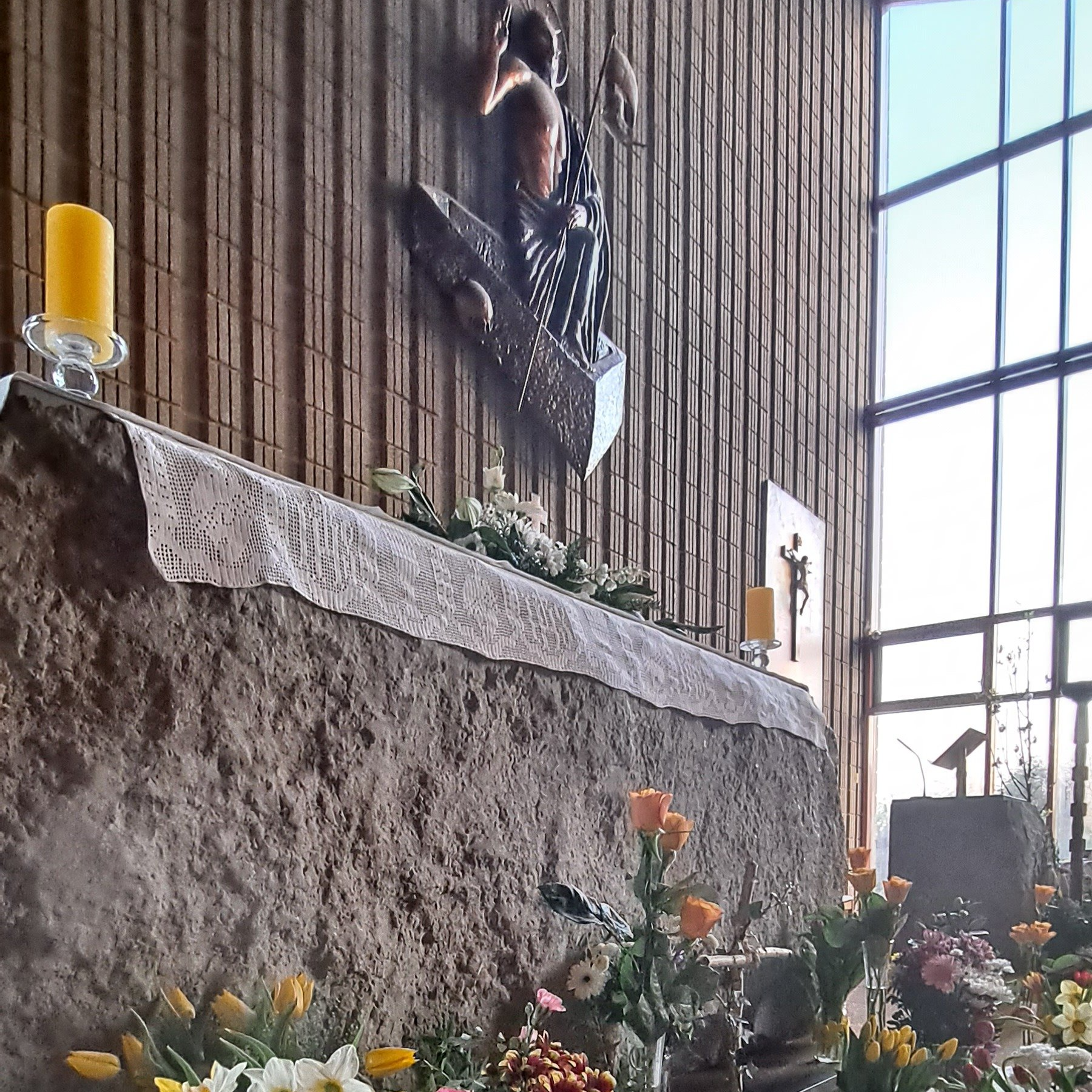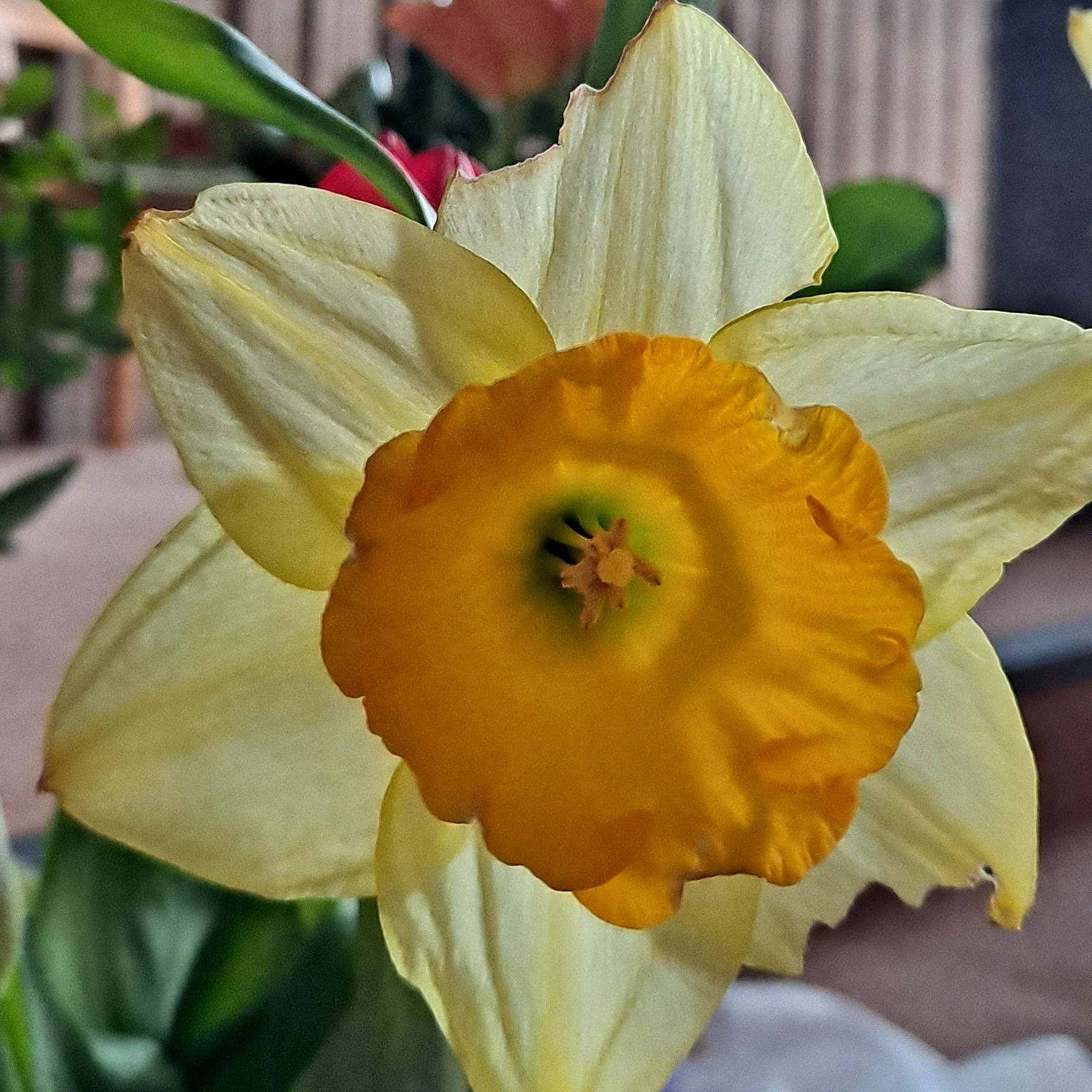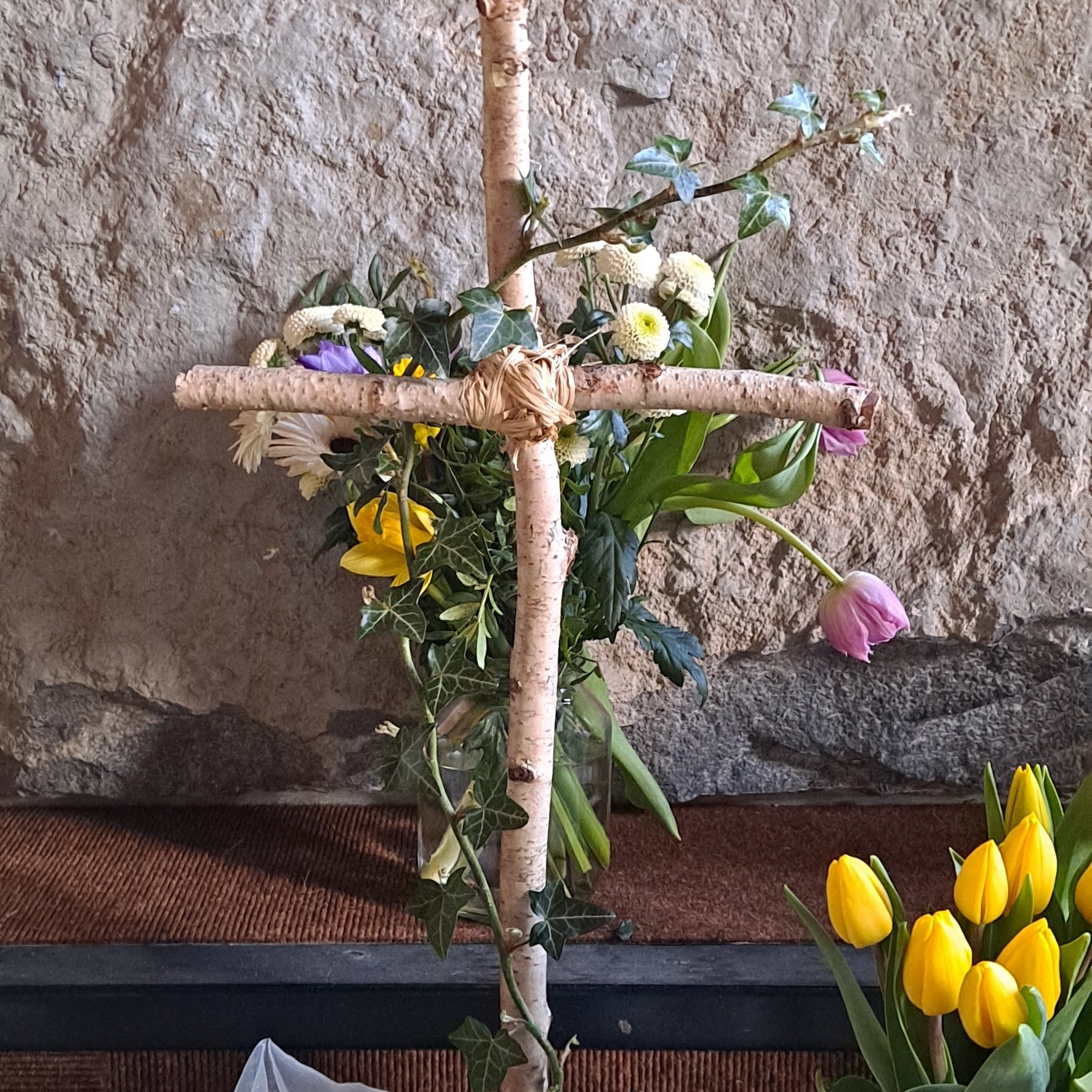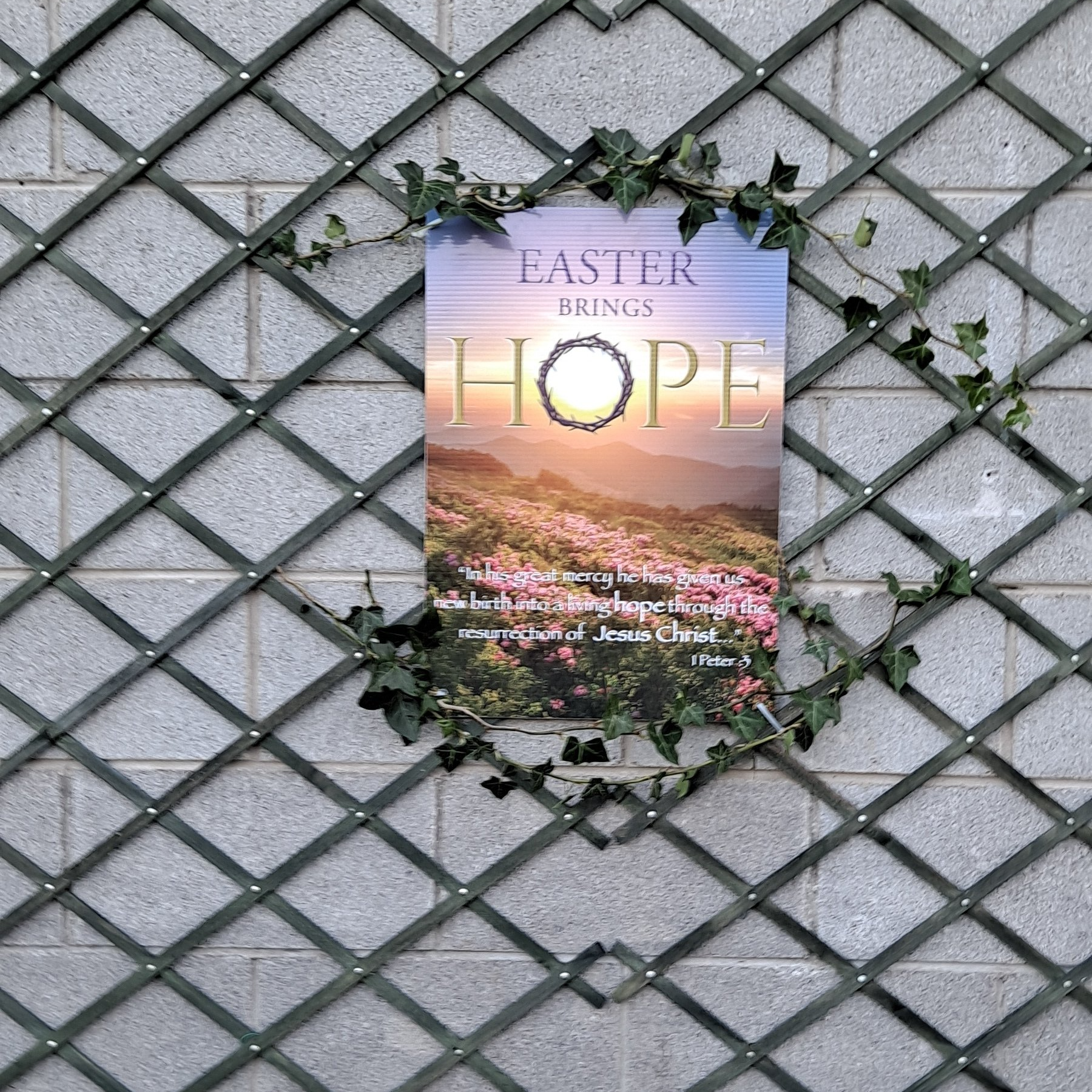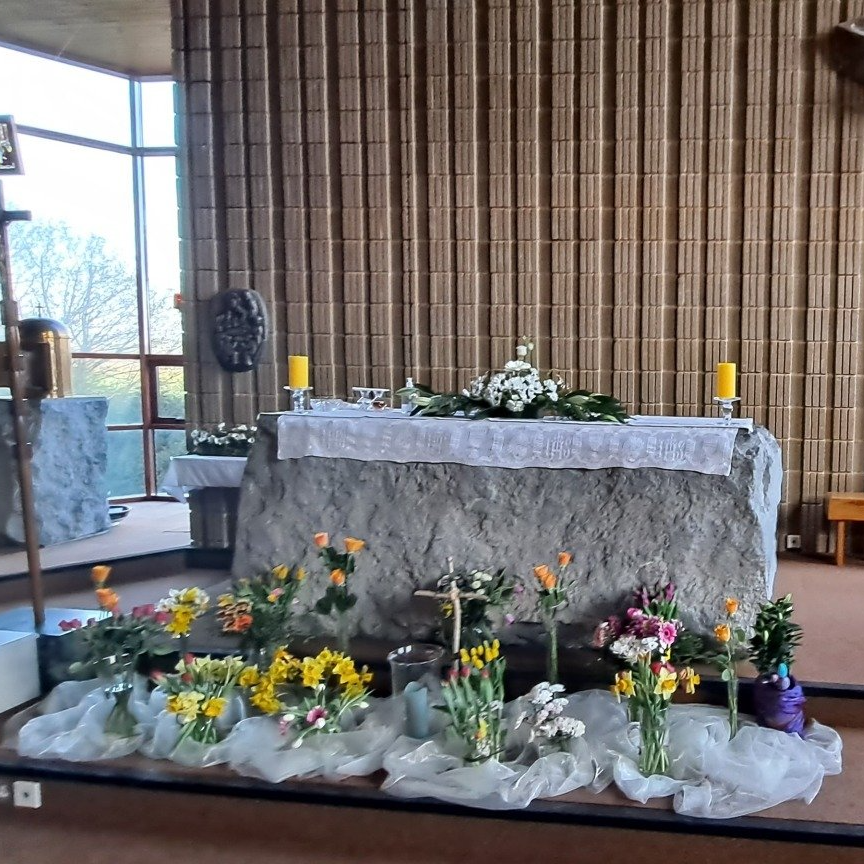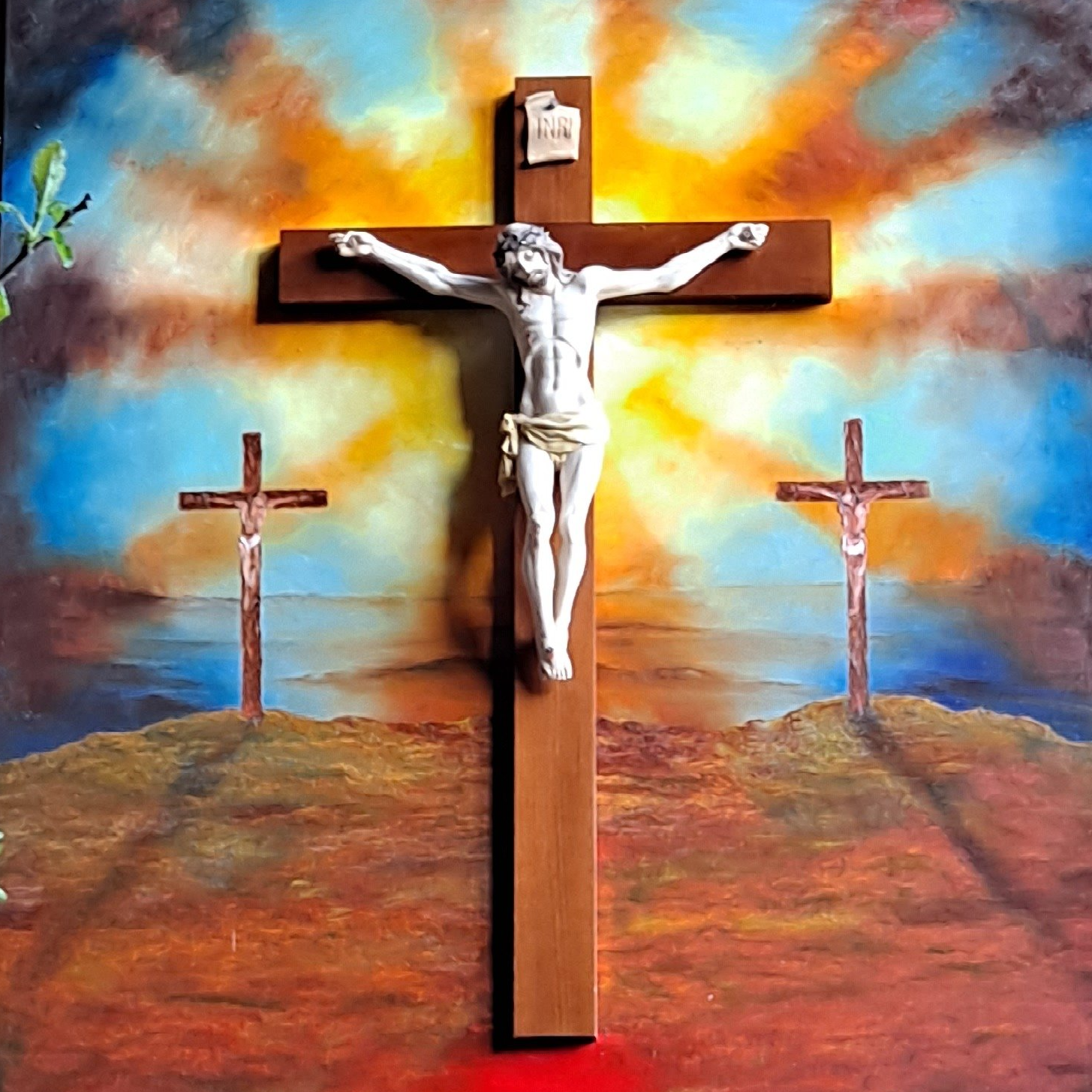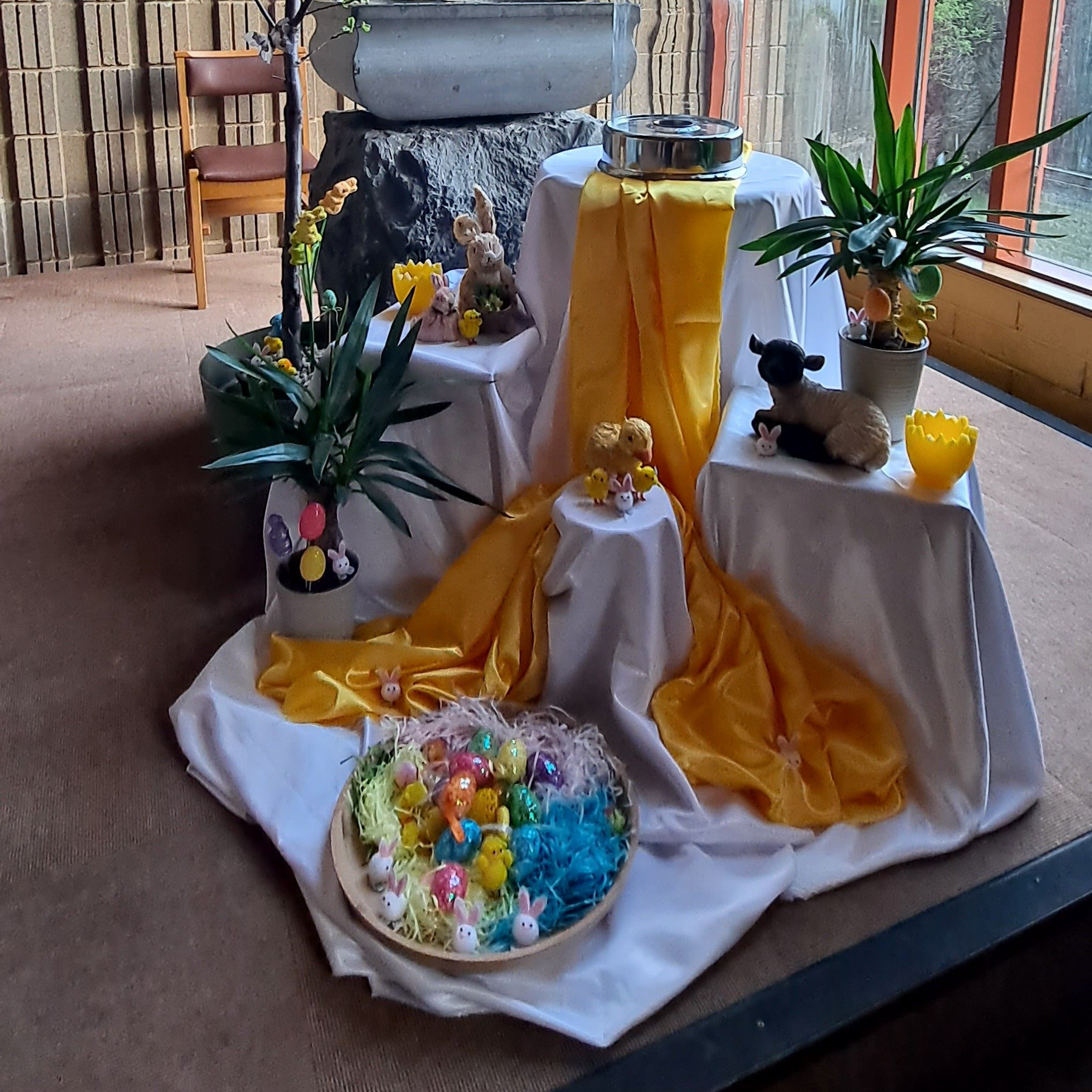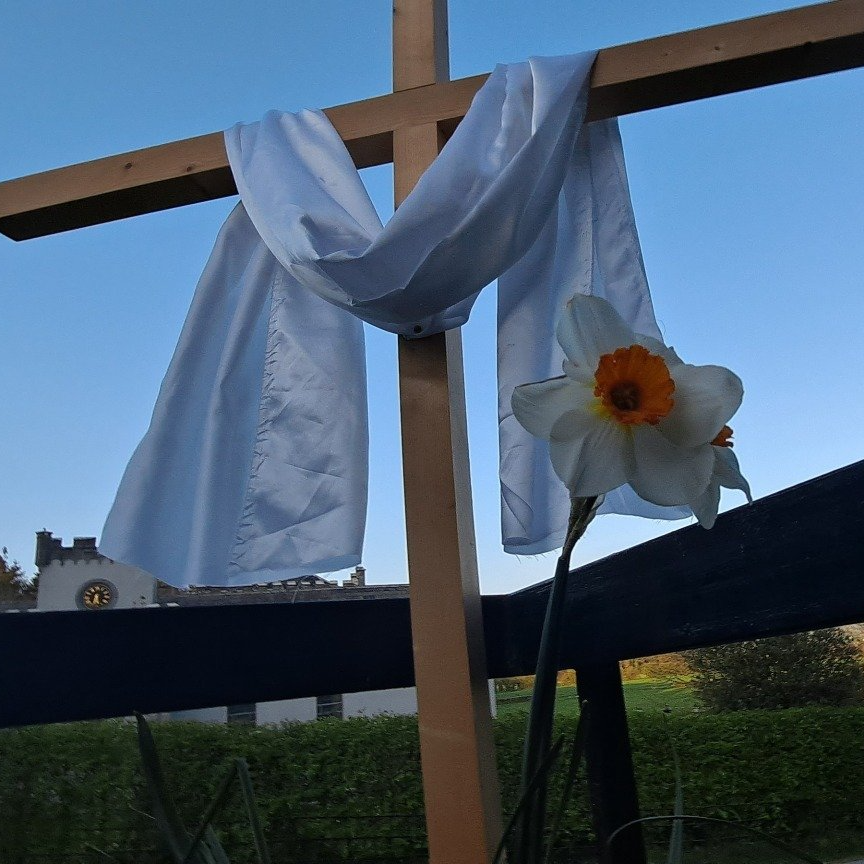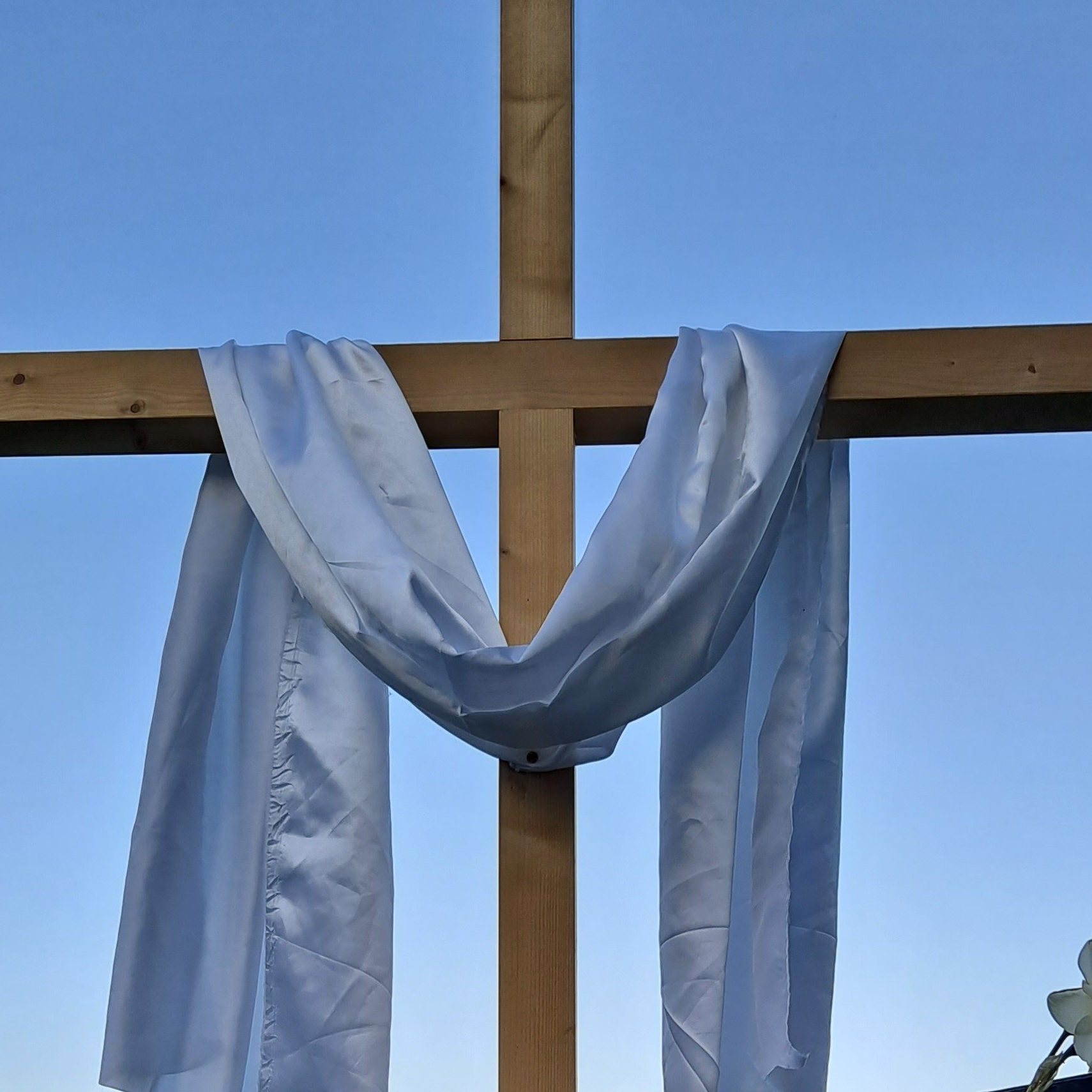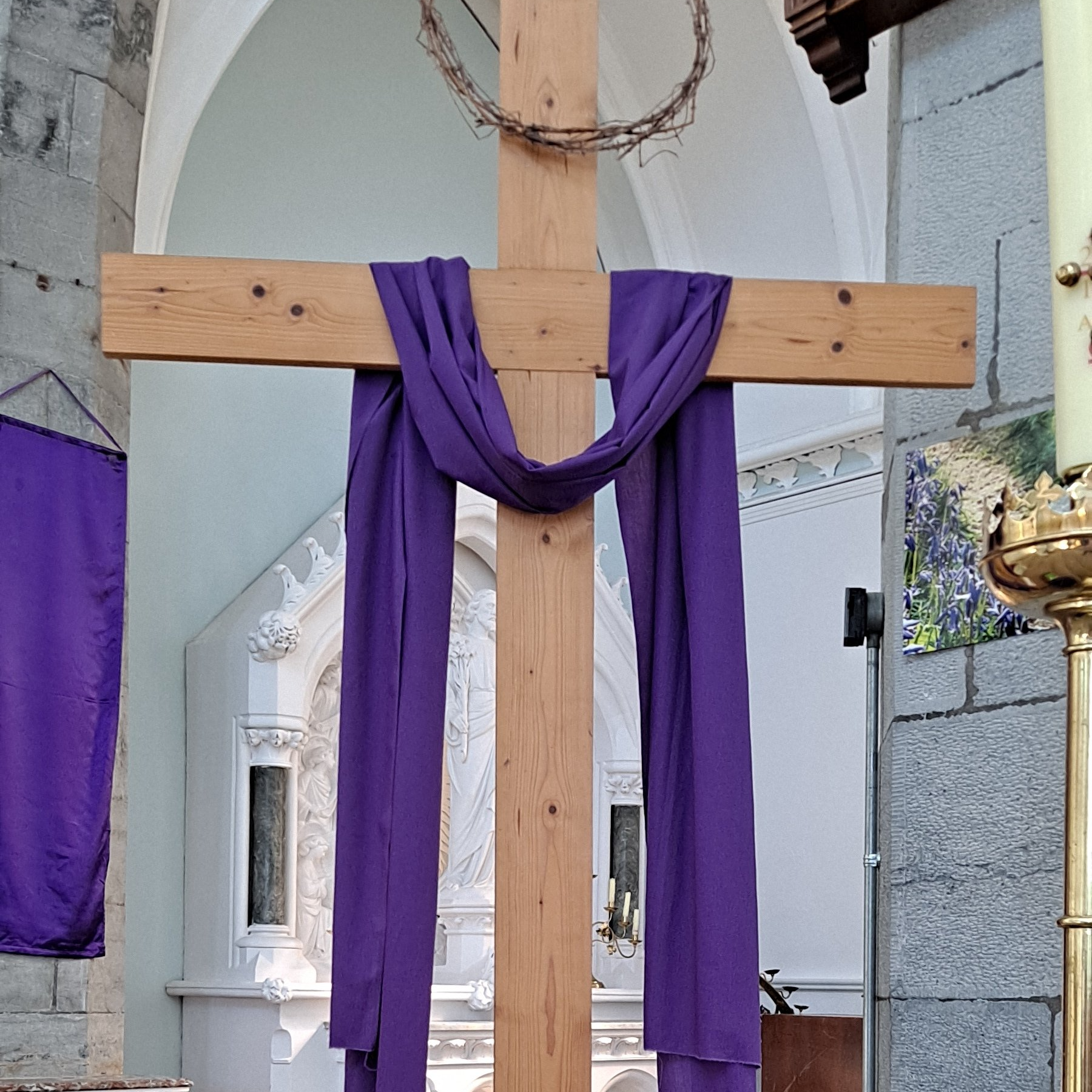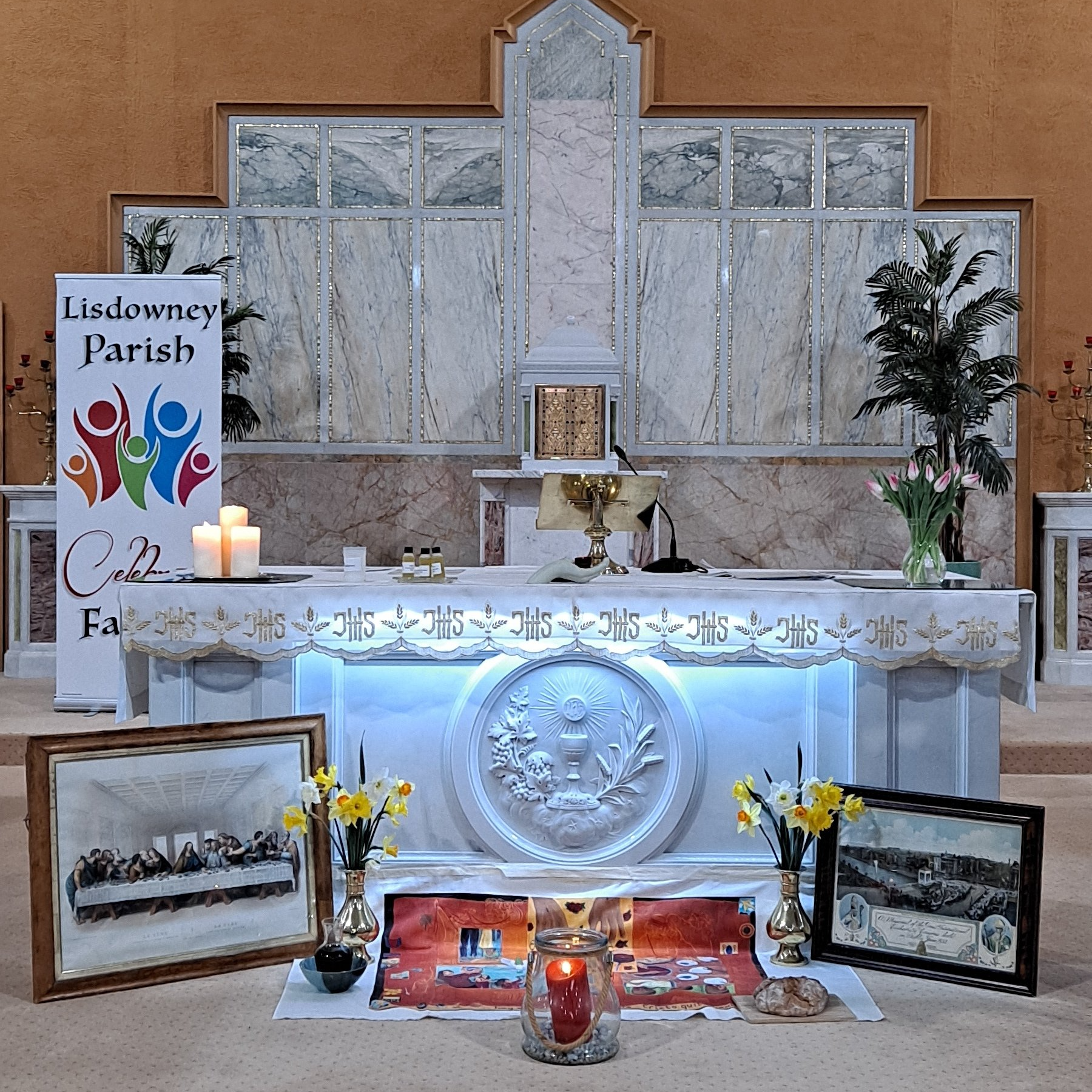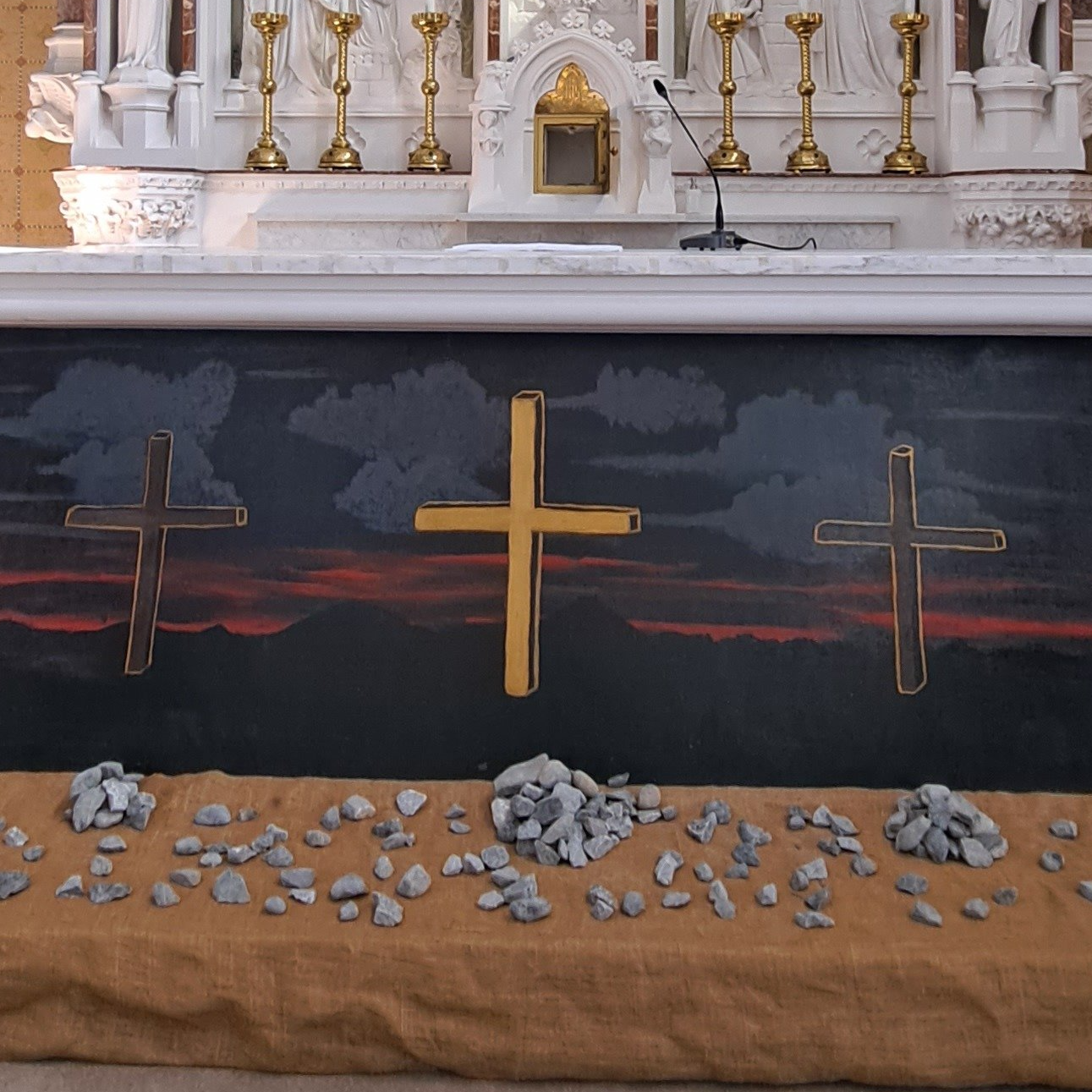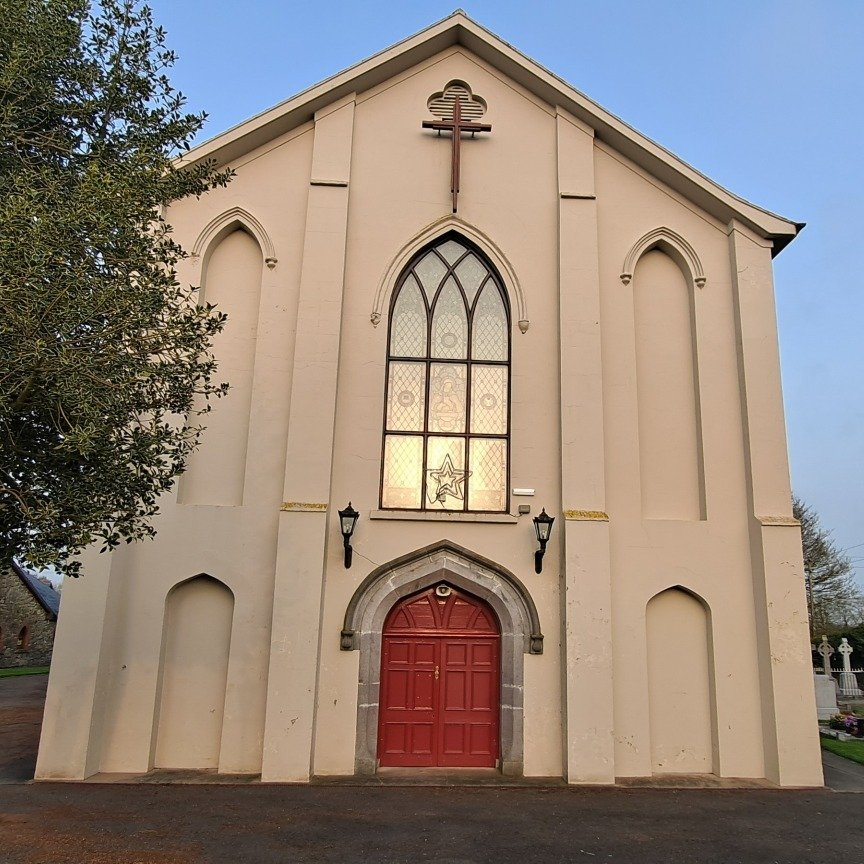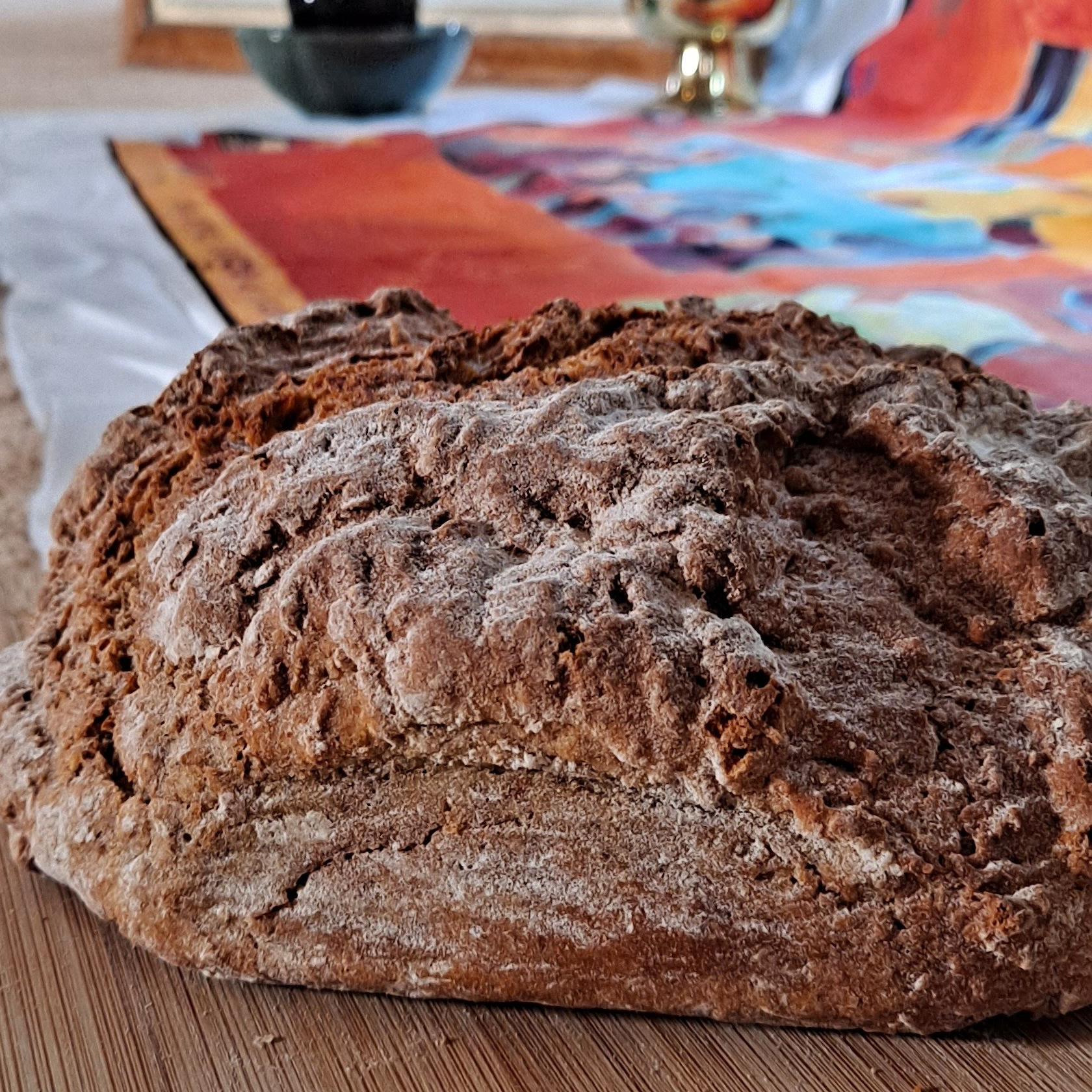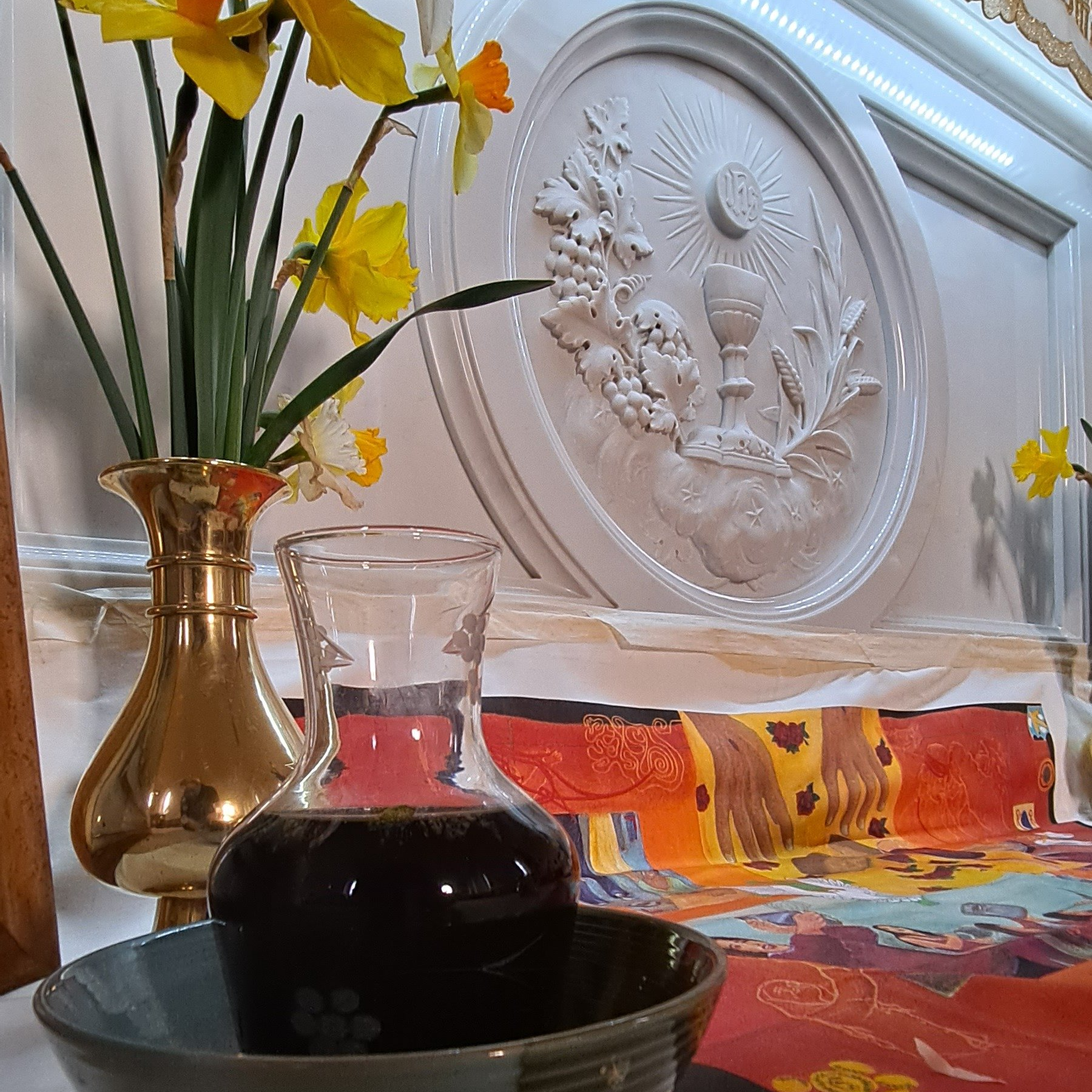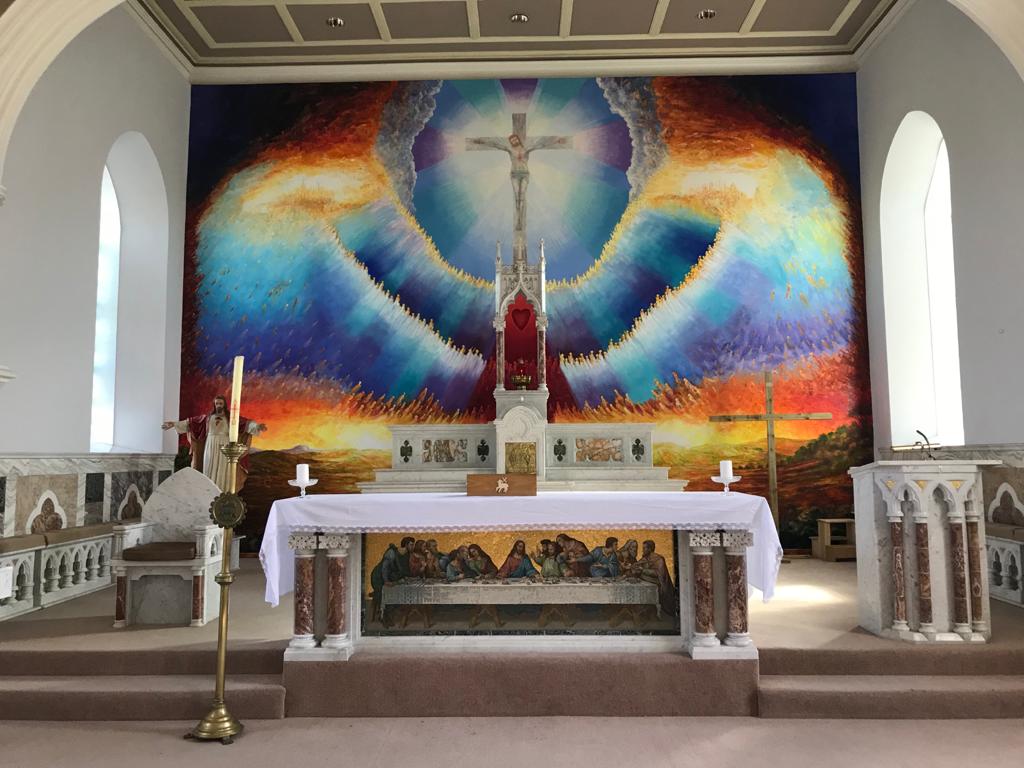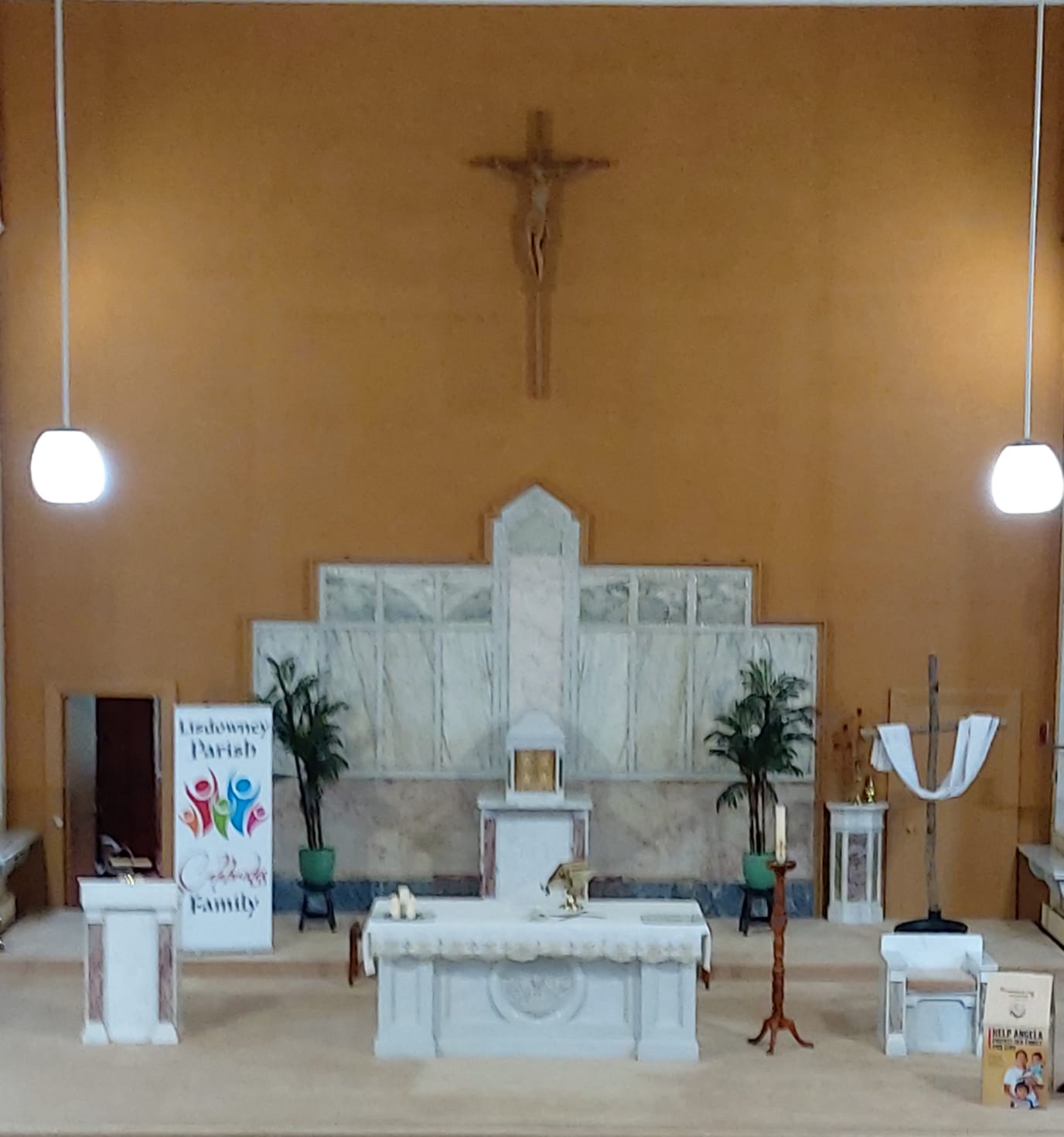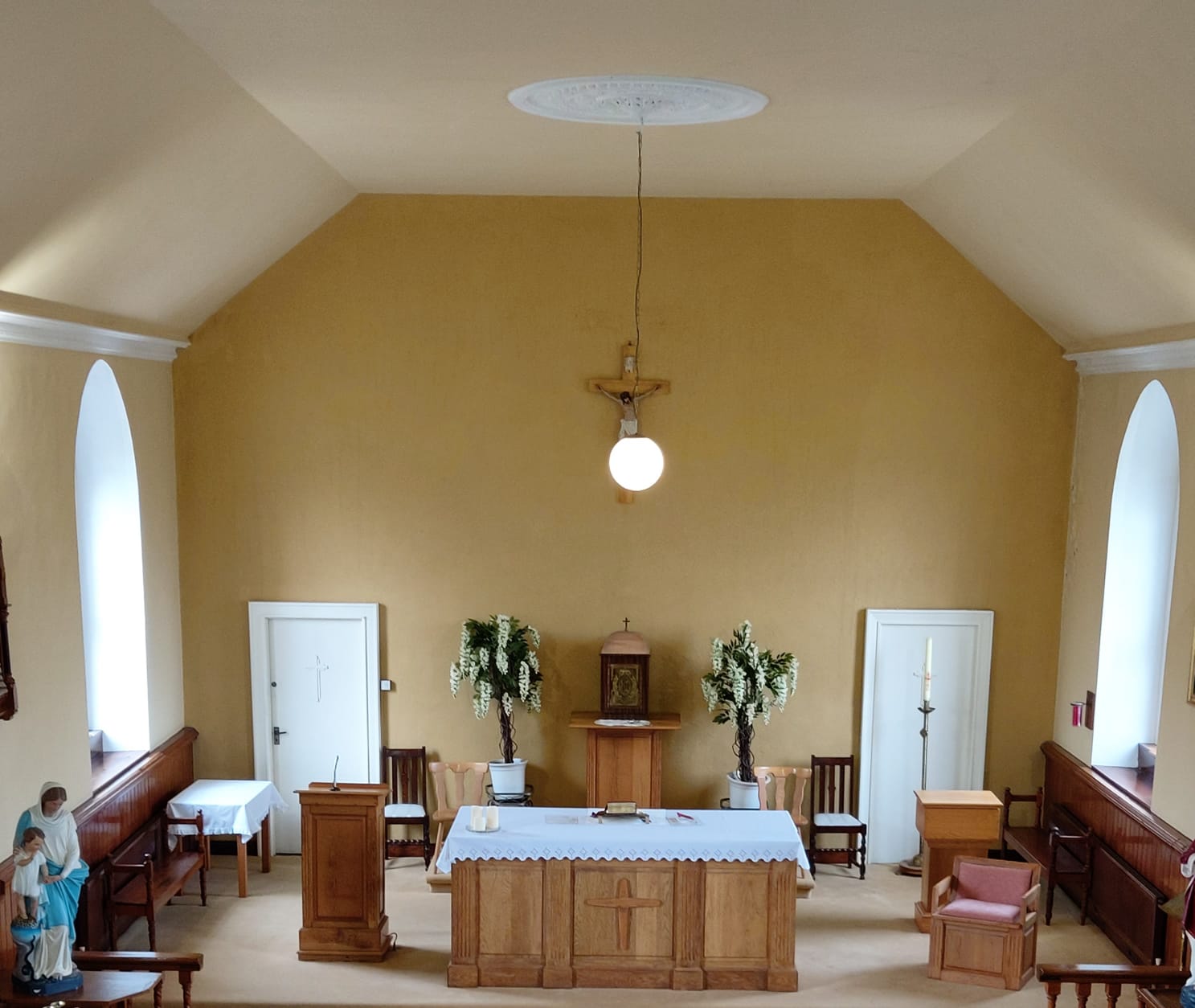"All things work together for good"
The Sacrament of Holy Orders
For more information and to learn more about Diocesan Priesthood and how to discover the path God is inviting you to follow in your life contact:
Rev. Kieran O’Shea,
Ossory Vocations Director,
St Mary’s Cathedral,
Kilkenny.
Mobile: 086 8272828
E-mail: vocations@ossory.ie
Me a Priest?
The word ‘vocation’ comes from the Latin word ‘vocare’ which means to call. A ‘Vocation’ is a call by Christ to live your life in a particular way. But practically what does this mean? Well at some level it involves a felt attraction to the vision and message of Jesus, and a desire to use one’s energies for the kind of ministry that he was about. And a hunch this offers both meaning and a real happiness, deep and lasting happiness.
To simply sum up: If God has chosen you to be a priest, this is the first thing he will do: He will make you think about it! Even if you do not want to. And these thoughts will not go away easily.
The call to vocation in the church is a call to use your gifts and talents and abilities to build up the Kingdom of God, depending upon his divine help and inspiration. Vocation then is a generous and radical giving of oneself to the service of our brothers and sisters. The call to priesthood is the call to give your life in making Christ’s presence real through the sacraments and especially through the Eucharist.
What is a Priest?
Every priest is called by God to a special intimacy with Christ whom he serves through the particular tasks entrusted to him. Called to build up the community of faith, he draws people together in Christ enabling them to use their gifts in the service of one another.
A diocesan priest exercises his ministry at the service of the Bishop to whom he promises obedience and under whose direction he exercises his ministry. Ordinarily his life will be one of proclaiming God’s Word, celebrating the Sacraments, visiting the sick at home and in hospital, visiting schools, burying the dead, and serving the people of God, of which he himself is a member.
The life of a diocesan priest is challenging but ultimately very fulfilling and very rewarding. For the diocesan priest, no two days are the same. Yes, there are aspects of his day to day life that are similar e.g. celebration of the Eucharist, but each new day brings with it new experiences, new encounters with people but most importantly new encounters with God.
The diocesan priest through his ministry witnesses to the presence of Christ in the world of everyday things. The diocesan priest is in essence the signpost to God. His life is testimony to the presence of God who will not leave His flock unattended.
Priestly Ministry
The ‘Yes’ that a person makes to the call to Ministry is a ‘Yes’ to Christ. In everything he does, the priest lives out his ‘Yes’ by responding to the opportunities and challenges he encounters every day. The diocesan priest, living in the midst of the world, serves God’s people through the specific tasks entrusted to him which are to teach, to sanctify and to lead through service. The priest teaches by preaching the Word of God, by preparing people to receive the Sacraments, by explaining the faith in schools and elsewhere, by initiating parish study groups, and by finding new ways of making Christ known to the people with whom he has contact. In his homilies, he seeks to apply the message of the Gospel to people’s daily lives.
Through the celebration of the Sacraments, he sanctifies the people entrusted to his care. In Baptism, he brings new members into the family of God. In the Sacrament of Penance, he reconciles men and women to God and the Church, bringing them the forgiving and healing love of Christ.
In the Sacrament of Matrimony, the priest witnesses the commitment of man and woman, sealing and strengthening their love in the love of Christ. When health is impaired by sickness or old age, the priest administers the Anointing of the Sick, which may restore people to health but which certainly unites the sick with Christ, giving them peace and grace.
Above all, in the Holy Mass, the priest offers a sacrifice of praise and thanksgiving to God, nourishing those gathered around the altar with the Bread of Life that they may go out and be witnesses to Christ in a world that needs Him so much.
From birth to the close of life, the priestly ministry is there to help the members of God’s family. And all the while, in his own prayer and the recitation of the Prayer of the Church, the priest offers praise, thanksgiving and intercession in the name of the whole Church. He deepens his bond with Christ, the High Priest and God our Father through the guidance of the Spirit.
The priest also lives a celibate life. This is something that many today find hard to understand. Priestly celibacy witnesses to the demands of God’s love in the world and also offers a unique kind of freedom that enables the priest to be completely at the service of God and his people.
The above seems like a lot. And I suppose it is. However, the candidate for priesthood is not expected to be prepared the first day he enters the seminary. Over the time he is in the seminary he receives the training and support he needs to grow and live out his priesthood in a healthy way. Although spending a number of years in the seminary seems a lot, the seminarian is glad of the chance to grow and gain the experience he needs before ordination. He is ordained on the last day in seminary, not the first so he has an opportunity to test his vocation and see over time whether or not priesthood is for him.
Follow Me
Sometimes the call may be experienced as a particular challenge from the Christian community: “So, what are you going to do?” or ‘you would make a good priest’, or may come to us at a specific moment perhaps at Mass, in a prayer group, during a pilgrimage, or in our time of silent prayer. For many, the question itself, “is Christ calling me to follow him?” may be the first intimation that they are called to priesthood.
Ultimately who God calls to be His priest, why one person thinks about priesthood and another doesn’t is a mystery. However, if a person does consider priesthood then that idea must have been planted in his heart and mind by God. God is the one who calls. Why he might call you is a mystery. You may look around you and see people who seem more gifted, holier, more capable and wonder why has God not chosen them? God chooses the weak and makes them strong. If you are asking yourself the question: ‘Why me?’ try asking another question: ‘Why not me?’
Do You Feel Called?
Precisely because Christ’s call isn’t experienced as a voice, we should always act on the intimations we receive. First of all, we should talk to a priest.
Don’t be put off! You could talk to a priest in your parish or, if you prefer, to one of the priests appointed by the Archbishop to advise and help you discern your vocation. This is important because not all priests have the same vocation.
Some live-in community as a member of a Religious Order, bound by the evangelical counsels of poverty, chastity and obedience. Others spend their lives working overseas as members of missionary congregations.
A diocesan priest lives his priesthood through serving the needs of the local Church as a co-worker with his Bishop, committing himself to the service of the Church through his service to the diocese.
For a diocesan priest his community is his parish. Whatever parish he is asked to minister to becomes his home, his family, his brothers and sisters. The diocesan priest is welcomed into the family of the parish. He is at one with them.
